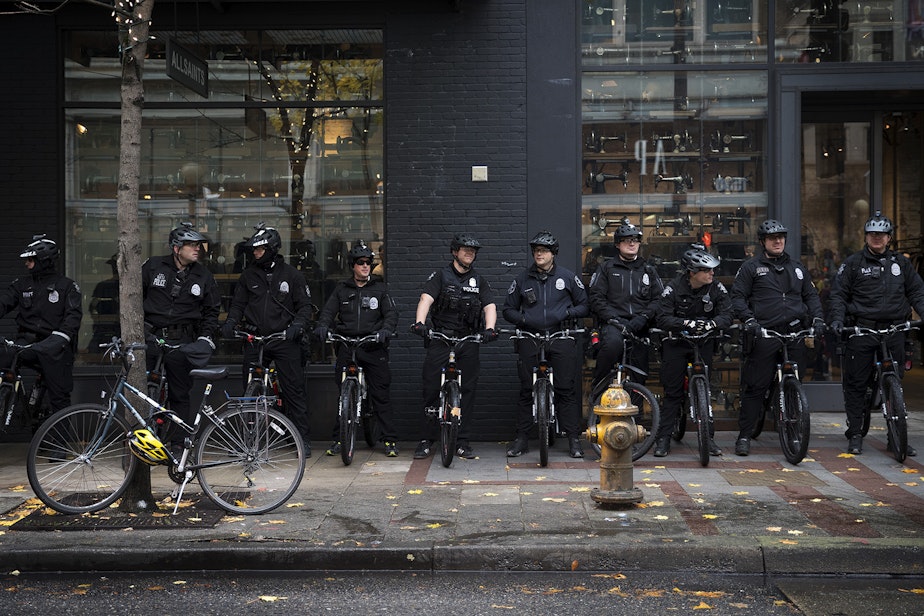Seattle mayoral candidates condemn police handling of 2020 protests

The top vote-getters in the race for Seattle mayor say they would have handled last summer’s Black Lives Matter protests differently from Mayor Jenny Durkan.
Speaking to reporters on primary night Aug. 3, former Seattle City Council member Bruce Harrell (who received 38 percent of initial votes) and current Seattle City Council president M. Lorena González (who received 29 percent of initial votes) denounced the Seattle Police Department’s tactics against protesters last summer, and said if elected mayor, they would take a different approach.
“I don’t think you’ll see from a González administration the occupation of an entire neighborhood for 14 days," González said, "and the repeated teargassing of a neighborhood that is completely unnecessary in the context of people exercising their First Amendment rights.”
She said if elected, her experience as a civil rights attorney would inform her approach to “make sure those protests are going to be safe and productive for everybody who’s participating.”
Both candidates said they would meet and work with protest organizers.
Harrell said he believed the city used unreasonable force in the protests. "We will have no tolerance for that in the city of Seattle under my leadership,” he said.
Sponsored
"I will meet with the protesters, I will talk about logistics," Harrell said. "I do not want to use any unreasonable force against peaceful protests.”
But he added, “When there’s violence we will have to act accordingly because there could be anarchy and property destruction, and I have little or no tolerance for that.”
Harrell said he would look for best practices from around the country “on how to deal with peaceful protests that then become infiltrated by violent property destruction and violent harm.”
In terms of other public safety issues, Harrell said the renegotiation of the Seattle Police officers union contract is critical, and he would seek new subpoena power for the city’s police accountability structure.
He also said he would consider reviving the city’s youth violence prevention initiative which started in 2009 during his time on the City Council.
Sponsored
“It ended up being somewhat dismantled,” he said. “The work was being done but it was spread apart in departments. I think we should have a centralized approach to violence and gun safety.”
Harrell said when he announced his candidacy, “I believed in effective public safety. Seven-minute response times. I understand why people want to defund [police], but I want to reimagine and reform.”
González said she heard voters asking for “someone who’s going to be able to thread the needle between the realities of public safety and keeping our Black and brown neighbors safe and protected from deadly force.”
She said hiring the next chief of police will be an important decision that she would make “community-driven.” But she said “no matter who the chief of police is, the buck always stops with the mayor.”
She said the “mayor is ultimately responsible for making sure the civil rights of people are protected, that we are demilitarizing our police department, and that police officers who are violating the rules are being held accountable to the fullest extent of the law.”




